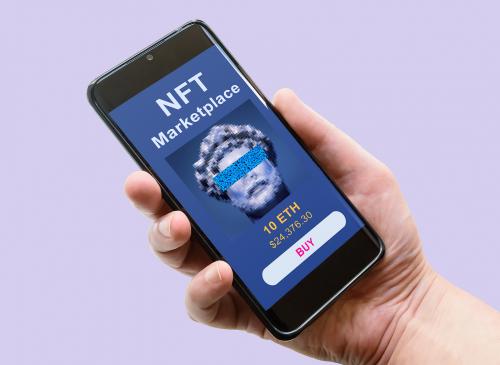Actor and comedian Seth Green, best known for creating Robot Chicken and portraying Dr. Evil’s son in the Austin Powers franchise, announced on Twitter last month that phishers stole his four “Bored Ape” NFTs. Let’s break down that mouthful: NFTs are a blockchain technology that creates indisputable ownership records that the art world has embraced as a way to buy and sell digital artwork. “Bored Apes” are a specific line of NFTs depicting original characters based on – you guessed it – bored apes.
Art theft is nothing new, but NFTs turn these existing precedents upside down. Traditional artwork is valuable because it’s unique and exclusive, and NFTs attempt to impose this uniqueness onto digital works. When a thief steals a painting, it’s gone. The underlying asset still exists when they steal an NFT, and anyone can still make infinite copies. Instead of stealing the pieces themselves, the thieves stole Green’s IP rights in the asset.
The stolen NFTs featured original characters that Green had developed into a television show. Unfortunately, the thief immediately flipped the pilfered monkeys to another presumably unsuspecting individual for $200,000. Green’s show has paused development, and likely won’t see the light of day unless he settles with the user who purchased the stolen NFTs. Green indicated that he was ready to take the issue to court and “set precedent” if that doesn’t work.
This case should be a lesson for artists and investors considering linking their IP to the blockchain: Copyright law already protects the legal rights of owners, and NFTs may not. While NFTs are incredible for recording title and provenance, treating them as commodities is inherently risky.
This post was authored by Blair Robinson, intern at Robinson+Cole. Blair is not admitted to practice law.
About this Author
Our lawyers are knowledgeable about data collection technology, including the use of cookies. We also understand the value of collecting and using data for marketing and other strategic purposes.
We are well versed in data breach response, remediation, coordination, and litigation, including investigations by the U.S. Office of Civil Rights and state AGs.
We actively attend and speak at FTC, state AG, and industry-sponsored workshops and programs on data privacy and security developments, cases, trends, and agendas. We…
You are responsible for reading, understanding and agreeing to the National Law Review’s (NLR’s) and the National Law Forum LLC’s Terms of Use and Privacy Policy before using the National Law Review website. The National Law Review is a free to use, no-log in database of legal and business articles. The content and links on www.NatLawReview.com are intended for general information purposes only. Any legal analysis, legislative updates or other content and links should not be construed as legal or professional advice or a substitute for such advice. No attorney-client or confidential relationship is formed by the transmission of information between you and the National Law Review website or any of the law firms, attorneys or other professionals or organizations who include content on the National Law Review website. If you require legal or professional advice, kindly contact an attorney or other suitable professional advisor.
Some states have laws and ethical rules regarding solicitation and advertisement practices by attorneys and/or other professionals. The National Law Review is not a law firm nor is www.NatLawReview.com intended to be a referral service for attorneys and/or other professionals. The NLR does not wish, nor does it intend, to solicit the business of anyone or to refer anyone to an attorney or other professional. NLR does not answer legal questions nor will we refer you to an attorney or other professional if you request such information from us.
Under certain state laws the following statements may be required on this website and we have included them in order to be in full compliance with these rules. The choice of a lawyer or other professional is an important decision and should not be based solely upon advertisements. Attorney Advertising Notice: Prior results do not guarantee a similar outcome. Statement in compliance with Texas Rules of Professional Conduct. Unless otherwise noted, attorneys are not certified by the Texas Board of Legal Specialization, nor can NLR attest to the accuracy of any notation of Legal Specialization or other Professional Credentials.
The National Law Review – National Law Forum LLC 3 Grant Square #141 Hinsdale, IL 60521 Telephone (708) 357-3317 or toll free (877) 357-3317. If you would ike to contact us via email please click here.
Author
Administraroot

